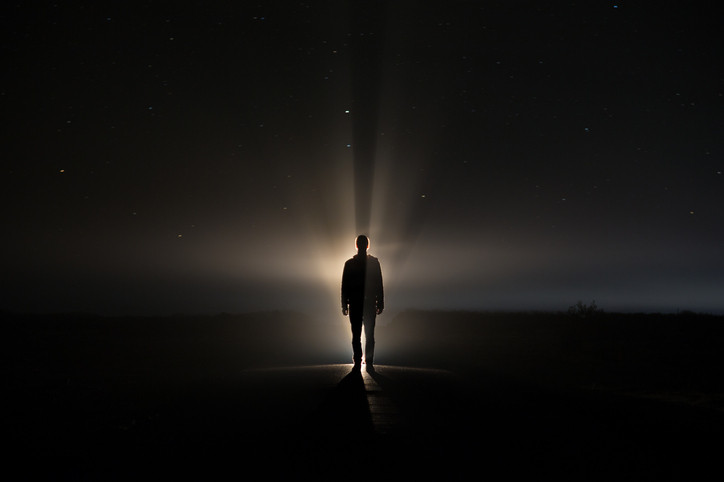Where the dark night leads
Posted 8th of October 2024 by Laurence Keith

It seems that most of us reach a moment in life where we
wonder what the point of it all is. It can be brought on by literally anything,
but often has its root in our mortality. If you ask the question: “what’s the
point of it all? If I’m going to die, why bother?”, you’re probably
experiencing this moment too. You might call it staring into the void; a sense
that you’re looking over an endless landscape of apparent meaningless. It’s
scary. It hurts. It seems impenetrable.
Sometimes this is the centre of a midlife crisis. It’s like
we get to the top of the hill that we’ve been climbing all our lives, see the
view, think it’s going to be amazing. But just at that point, when you have
crested the top, reached the pinnacle, is when you begin to see down the other
side to the inevitable conclusion of your own mortality. Like winning a gold
medal and then realising it’s just a piece of metal. It seems to me we then
have a choice; either pretend you didn’t see anything and go find another hill
to climb, or stare into the void. It takes real courage to face that, and I
wouldn’t wish it upon anyone until they are ready.
It's in moments like this that we search for a sure anchor
to give us a sense of safety, comfort and meaning. This is when a lot of people
turn to God, if they haven’t already. Or a higher cause, a purpose greater than
ourselves. It feels amazing and meets a need, so we run with it.
But then 10, 15 years later, we might find ourselves at the
top of another hill, staring out again into the void. “So God is with me, so I
have found a greater purpose than me, but still, I will die, I will leave loved
ones behind, nothing has really changed.” This returning to a bleak moment the
Christian mystics would call the dark night of the soul. I find comfort in
that; people more spiritual and mature than I have also found they have had to
face this feeling.
And the answer? How could anyone definitively know? It seems
like there are no more firm anchors that give a sense of safety, comfort, and
meaning. No more chasing other dreams up a different hill, putting off the
inevitable. Instead, there's a quiet, calm acceptance that this is where we
find meaning—not in avoiding the uncertainty, but in embracing it.
Finding peace in not knowing might feel paradoxical, but
it’s possible. We begin by leaning into our connections with others and
deepening our understanding of ourselves. It’s in the small, daily acts of
presence—truly listening to a friend, spending time in nature, or even feeling
the ground beneath our feet—that we start to reclaim a sense of peace. When we
stay present, we realize we aren’t alone. There is love and comfort in shared
experience, and from there we can chart a course forward.
This course may look different for each of us. It might mean
joining a community or supporting a cause that matters deeply. It might mean
nurturing the relationships we already have with more authenticity. It might
mean turning inward and practicing gratitude for the present moment, or even
seeking guidance through meditation or prayer. The practical steps can be
simple but deeply transformative—reflecting our commitment to be present and
open, rather than always needing answers.
In facing the unknown, we grow—not in a straight line, but
in cycles, much like the stages of faith described by Brian MacLaren:
simplicity, complexity, perplexity, and eventually harmony. The harmony that
emerges isn’t about certainty, but about learning to rest comfortably in the
mystery of life. We find that we are enough as we are, and that our lives, with
all their uncertainties, hold beauty and meaning.
To some, this journey forward might lead to world-changing
acts, while for most of us, it’s about living our everyday lives with greater
awareness, care, and compassion. This can look quite unimpressive on the
outside, but inside, we find we have finally discovered a true home—a sense of
belonging that doesn’t come from fixed answers but from our willingness to be
present with ourselves and with others.
